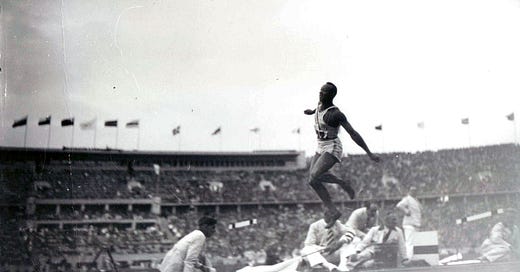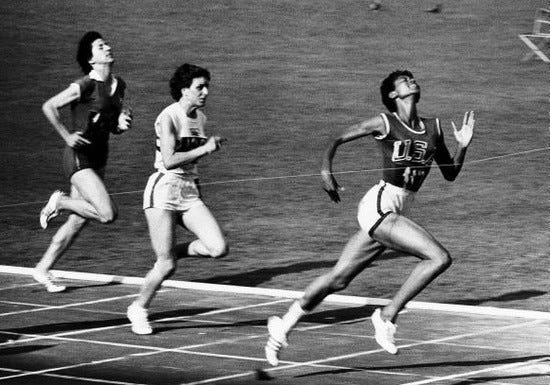The modern Olympics have long served as a stage for athletic prowess, with athletes pushing the boundaries of human performance.
The 20th century, in particular, saw some of the most exhilarating records shattered, forever etching these athletes into the annals of history.
Here’s a look at five outstanding records set during this era, highlighting the athletes, the venues, and the significance of their achievements
1. Jesse Owens' 1936 Berlin Games Triumph
Record: Owens won four gold medals in the 100 meters, 200 meters, 4x100 meter relay, and long jump. His 100 meters time of 10.3 seconds and long jump distance of 8.06 meters stood as Olympic records.
Athlete: Jesse Owens, USA
Location & Date: Berlin Olympic Stadium, Berlin, Germany - 1936
Why This is Important To Sporting History: Jesse Owens' achievements at the 1936 Olympics are legendary not only for their athletic excellence but also for their profound socio-political impact.
In a Games held under the shadow of Nazi ideology, Owens' four gold medals symbolized a triumph over racial prejudice and showcased the universality of human talent. His performance was a powerful statement against the racial superiority claims propagated by the Nazi regime, making his victories emblematic of courage and defiance.
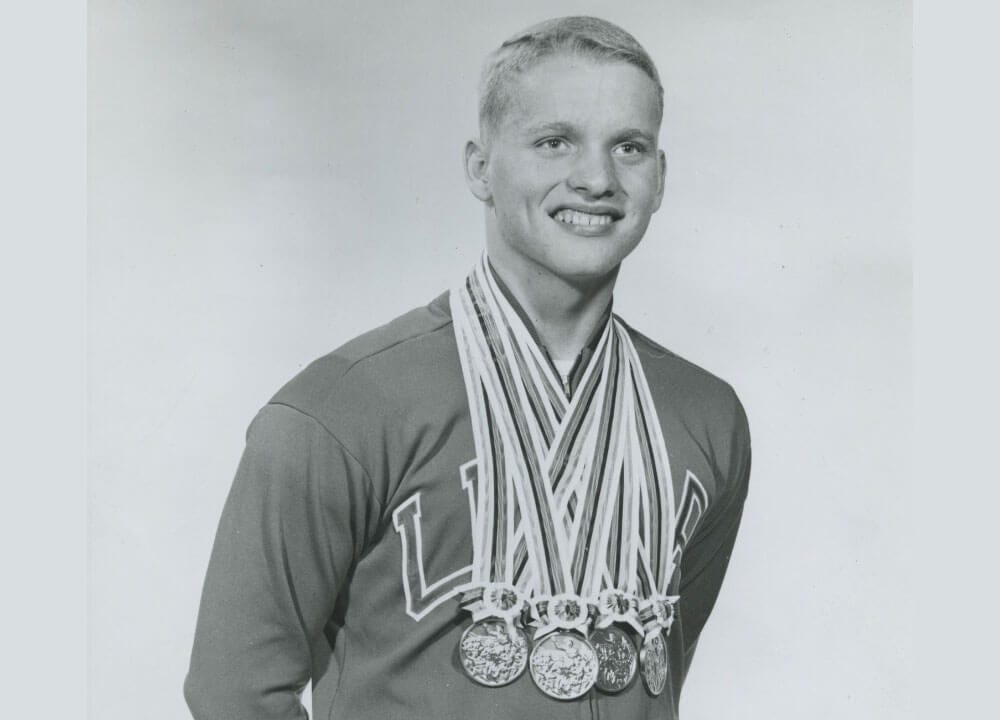
2. Don Schollander's 1964 Tokyo Games Swimming Mastery
Record: Schollander won four gold medals in the 100 meters freestyle, 400 meters freestyle, 4x100 meters relay, and 4x200 meters relay.
Athlete: Don Schollander, USA
Location & Date: Yoyogi National Gymnasium, Tokyo, Japan - 1964
Why This is Important To Sporting History: Don Schollander's dominance in swimming during the 1964 Tokyo Olympics was a demonstration of his versatile prowess in the pool.
His performances helped solidify the U.S. as a swimming powerhouse and set new benchmarks for speed in the sport. Schollander's achievements were significant for their breadth and consistency, marking him as one of the top swimmers of his era and inspiring future generations.
3. Wilma Rudolph's 1960 Rome Games Phenomenal Sprinting
Record: Rudolph became the first American woman to win three gold medals in a single Olympics, achieving victories in the 100 meters, 200 meters, and 4x100 meters relay.
Athlete: Wilma Rudolph, USA
Location & Date: Rome Olympic Stadium, Rome, Italy - 1960
Why This is Important To Sporting History: Wilma Rudolph's triumphs in Rome were groundbreaking not only for her athletic feats but also for the barriers she broke as an African American woman.
Her victories in 1960 showcased her incredible speed and endurance, overcoming polio and various societal obstacles. Rudolph’s success was a beacon of hope and a powerful statement for civil rights and women’s athletics.
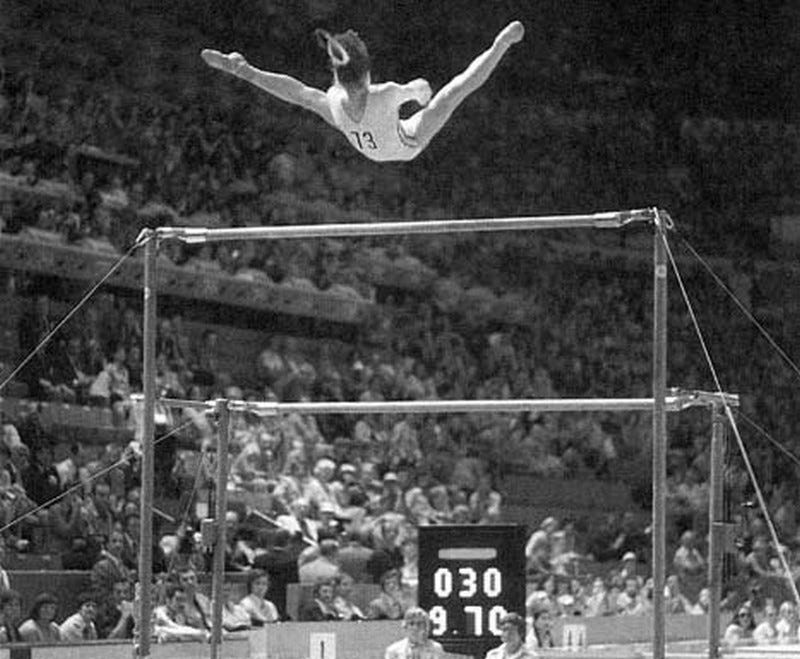
4. Nadia Comaneci’s Perfect 10 in 1976 Montreal
Record: Comaneci scored the first perfect 10 in Olympic gymnastics history during the 1976 Montreal Games. She earned seven perfect 10s in total.
Athlete: Nadia Comaneci, Romania
Location & Date: Montreal Forum, Montreal, Canada - 1976
Why This is Important To Sporting History: Nadia Comaneci’s flawless performance was a historic milestone in gymnastics. Her perfect 10s transformed the sport and set a new standard for excellence.
At just 14 years old, her grace, precision, and strength captivated audiences and judges alike, making her a global icon and elevating gymnastics to new heights.
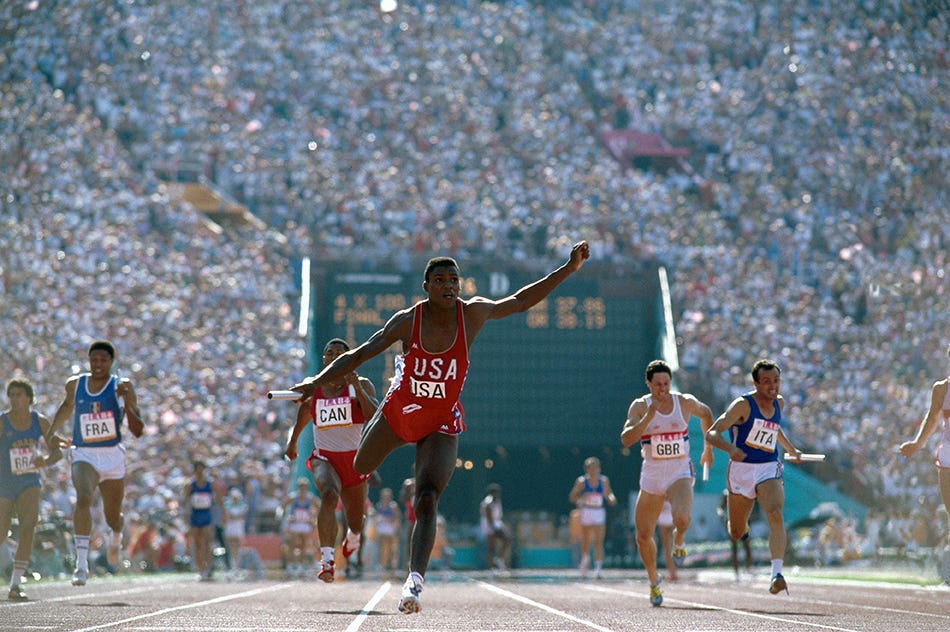
5. Carl Lewis' 1984 Los Angeles Games Sprint and Long Jump Dominance
Record: Lewis won four gold medals in the 100 meters, 200 meters, 4x100 meters relay, and long jump. His long jump distance of 8.54 meters was particularly noteworthy.
Athlete: Carl Lewis, USA
Location & Date: Los Angeles Memorial Coliseum, Los Angeles, USA - 1984
Why This is Important To Sporting History: Carl Lewis' performance at the 1984 Olympics was a showcase of versatility and dominance across multiple disciplines. His achievements in sprinting and long jumping demonstrated extraordinary athleticism and precision.
Lewis’ ability to excel in both the sprints and the long jump made his achievements rare and exceptional, cementing his legacy as one of the greatest track and field athletes in history.
These records from the 20th-century Olympics reflect not only the incredible talents of the athletes who set them but also the broader contexts in which they competed. From battling societal norms to redefining what was thought possible in sports, each record serves as a testament to human determination and excellence.

